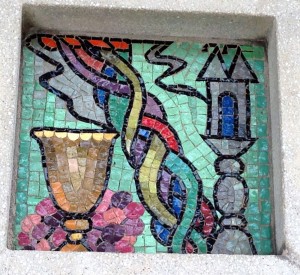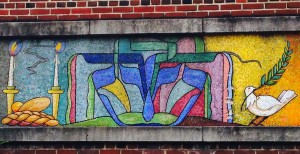Judaism has always been more than a religion, although, for many, is practiced mainly as a religious practice that is God centered and includes many stringent laws and rituals. The Middle Way is well expressed in Humanistic Judaism, a non-theistic alternative that has been practiced formally since the 1960’s, although was less formally practiced since the beginning of the modern age. For humanistic Jews, Judaism is the cultural and historical experience of the Jewish people. Looking at that historical experience led many Jews to realize that a pragmatic, human-centered philosophy made sense. If Jews were to survive at all, they had to take control of their destiny.
Jews, Judaism is the cultural and historical experience of the Jewish people. Looking at that historical experience led many Jews to realize that a pragmatic, human-centered philosophy made sense. If Jews were to survive at all, they had to take control of their destiny.
The Middle Way for humanistic Jews is to embrace our Jewish family and be open to the world around us as well. Gathering in our open, welcoming communities, we joyfully celebrate Jewish holidays and passages of life using words that our members can say with integrity. Most of our members are agnostics or atheists, though some believe in God. There are other institutions that use traditional prayers in their practice for those Jews who are comfortable with God language. Jews involved in Society for Humanistic Judaism communities are comfortable living with uncertainty and prefer that the language of our services be consistent with our beliefs, evolving as these may be. We have no permanent required liturgy allowing for the changing understandings of our members.
We live in an open society and we engage with everyone to perform tikkun olam, to repair the world. This is the ethical side of our practice, not at all uniquely Jewish, though we feel pride about how central this concept of repairing the world has been part of our tradition.
Humanistic practice seems the most consistent with the Middle Way. We are pragmatic and open-minded and our practice is born of the experience of the Jewish people, i.e., is based upon our experience.
Although the Middle Way is central to humanistic Jewish practice today, we can even see strands of it throughout rabbinic literature. There is a strong tradition within rabbinic Judaism that values continual interpretation of the Hebrew Bible and rabbinic literature. All branches of Judaism value debate about the meaning of stories and passages within this vast literature. The fundamentalism that exists today within the Jewish world is an anomaly and a reaction to modernism.  Judaism has always been evolving and has always valued discussion about the meaning of texts, based largely on individual experience as they engage with the text throughout the ages and continuing until the present. One can see the Middle Way approach in the integration achieved through text study and debate within the Jewish tradition, both old and modern.
Judaism has always been evolving and has always valued discussion about the meaning of texts, based largely on individual experience as they engage with the text throughout the ages and continuing until the present. One can see the Middle Way approach in the integration achieved through text study and debate within the Jewish tradition, both old and modern.
Rabbi Susan Averbach

Thank you. I didn’t know any of this, having grown up so to speak with the Chinese/Japanese models. Born 1946. Lifelong practitioner in tikkun olam, once upon a time developing a “tikkun coin” long story, but thank you again. If you can recommend any books or other related materials I would appreciate it.
Be safe and be well. Steven Steinberg